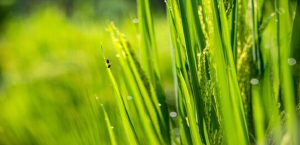Abstract:
Prof Nicotra’s talk will present current work in the lab that builds on the fundamental work her group has done in plant reproductive and thermal ecology and the evolutionary ecology of phenotypic plasticity. These projects bring evolutionary theory to bear on conservation and management in the face of rapid climate change. In particular she will present work from the “Save Our Snow Gum” project which examines the drivers and consequences of forest dieback in the high elevation sub alpine tree species, Eucalyptus pauciflora (mediated by drought, warming and a native wood boring beetle). Working with an interdisciplinary group the work examines impacts of tree loss on carbon and water dynamics, causes of tree loss, potential options for mitigation of the dieback and the social dimensions of transformational change in an iconic landscape. One component of that is understanding genomic differentiation in the snow gum taxa and how they differ in phenotype, plasticity and physiological tolerances of heat and drought. In addition she’ll discuss the ATLS (“Assessing Thermal Load Sensitivity”) project which takes a whole of life demographic perspective to understanding mechanisms underlying thermal tolerance in plants.The project focuses on the heat load or dosage response (effects of intensity * duration) to heat in a range of tissues and ontogenetic stages. While the importance of heat load is increasingly appreciated, the process by which organisms to acclimate to load and the implications of a slow accumulation of aclimatory responses, heat damage and recovery processes is poortly resolved.
Speaker: Prof. Adrienne Nicotra
Affiliation: Australia National University
Time: 10:30 PM, Tuesday, Apr. 29, 2025
Venue: Offline: The Conference Hall in Xishuangbanna Headquarter
Online: Tencent Meeting ID:854 410 823



